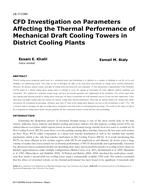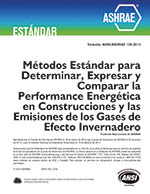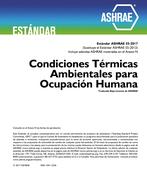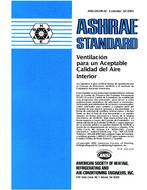Description
District cooling means producing cooled water in a centralized plant and distributing it in pipelines to a number of buildings to cool the air in each building’s air conditioning system. This study set out to investigate the effect of the wind speed and direction on cooling towers thermal performance. Moreover, the distance between banks, and effect of cooling tower fan speed were also simulated. A three-dimensional Computational Fluid Dynamics (CFD) model of a district cooling plant cooling towers is utilized to assess the amount of recirculated air under different ambient conditions and orientations. The standard κ-ε turbulence model, energy and mass conservation equations were implemented in the calculation. The current study shows that blowing wind direction parallel to cooling towers bank gives the lowest recirculation rate with minimum increase in inlet wet bulb temperature. Lower wind speed and higher cooling tower fan velocity can enhance cooling tower thermal performance. Increasing the distance between the cooling tower banks can decrease the recirculated air percentage. Distances more than 25 times of the cooling tower diameter can have as low recirculation as only 7.5%. This is the first study to investigate the effect of cooling towers arrangement and wind speed on recirculating flow percentage. The results of this study can help in the arrangement of cooling towers banks and give guidelines for their orientation relative to wind direction and surroundings.
Citation: 2017 Annual Conference, Long Beach, CA, Conference Papers
Product Details
- Published:
- 2017
- Number of Pages:
- 8
- Units of Measure:
- Dual
- File Size:
- 1 file , 2.4 MB
- Product Code(s):
- D-LB-17-C069




